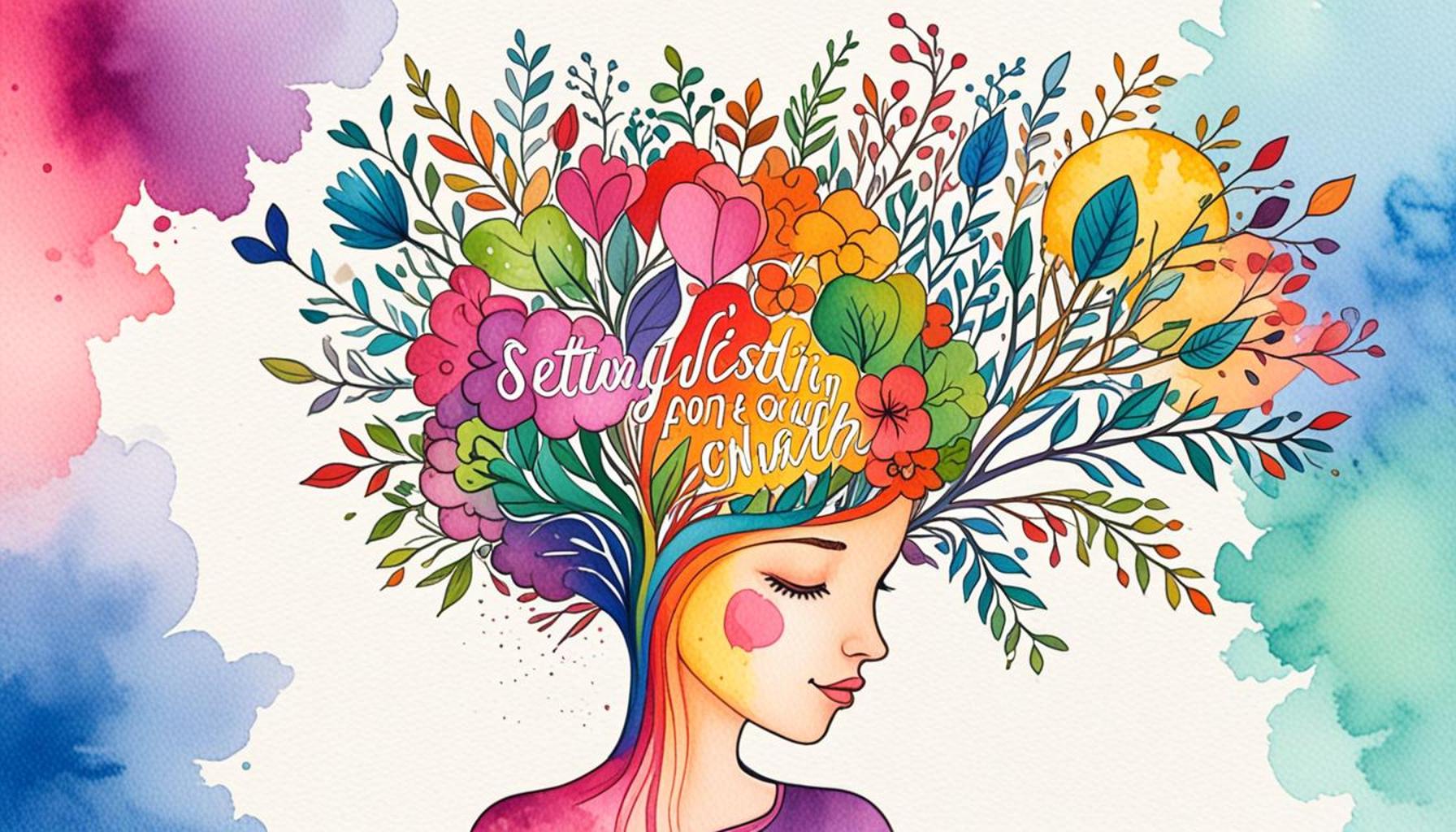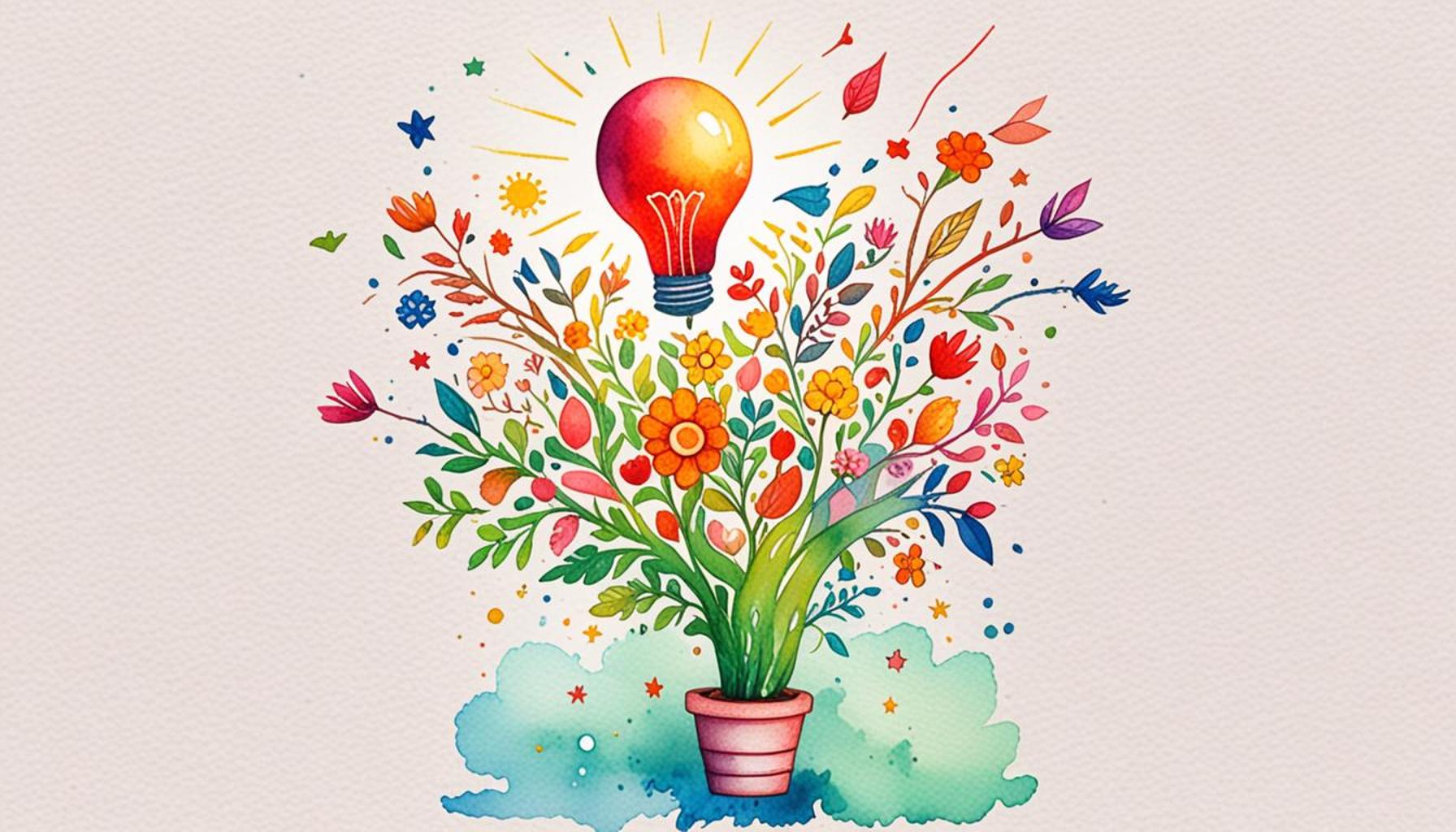Establishing Goals for Well-Being: The Intersection of Mental Health and a Growth Mindset

The Importance of Mental Health in Goal-Setting
Mental health is increasingly recognized as a vital element in the overall quality of life, serving as the foundation for effective functioning in both personal and professional spheres. When individuals encounter the daily trials of life, establishing clear goals provides a focused path toward overcoming obstacles and achieving personal growth. This crucial component is amplified when combined with a growth mindset, which encourages a belief in the potential for improvement and change.
The intersection of mental health and goal-setting is not just theoretical; it represents a practical framework that can genuinely transform lives. For instance, when individuals cultivate self-awareness, they gain insights into their emotional responses and identify personal triggers that may lead to stress or anxiety. This heightened awareness allows them to set realistic and meaningful goals that align with their mental health needs.
Incorporating mechanisms like positive affirmations can significantly bolster an individual’s journey towards mental wellness. By fostering an environment of encouraging self-talk, a person can build their confidence and enhance their self-esteem, creating a fertile ground for pursuing larger aspirations without being held back by self-doubt.
Moreover, formulating adaptive strategies is essential for coping with life’s inevitable setbacks. The development of these coping mechanisms not only sharpens problem-solving skills but also fortifies resilience, enabling individuals to bounce back more quickly from adversity. For example, a student facing academic pressure could set specific goals surrounding study habits, while also developing relaxation techniques to manage anxiety.
Cultural Perspectives on Mental Health in Nigeria
In Nigeria, the conversation around mental health is often influenced by cultural perspectives that may stigmatize emotional struggles. However, breaking the silence surrounding these issues can lead to significant changes in perception and understanding. Initiating open dialogues in community support systems, workplaces, and educational institutions is imperative. For example, schools can incorporate mental health education into their curricula, promoting awareness among students from an early age.

Community Engagement for Mental Wellness
Recognizing the importance of community resources is also essential. Various organizations, from non-profits to local health clinics, provide programs aimed at supporting mental wellness. Engaging with these resources can empower individuals to pursue their goals while prioritizing their mental health. For instance, local mental health initiatives may offer workshops or group therapy sessions that incorporate goal-setting into their frameworks, creating a supportive environment for shared experiences.
The process of aligning goal-setting with mental health practices naturally raises important questions. What personal goals can truly enhance resilience? Reflecting on these questions allows individuals to draw connections between their aspirations and their overall mental health journey. By addressing elements such as these, we not only pave the way for profound personal growth but also contribute to the broader narrative surrounding mental health awareness in communities.
Ultimately, as we continue to explore and embrace these principles, we can cultivate an inclusive atmosphere that recognizes mental health as a crucial part of personal development. This understanding fosters the empowerment necessary for individuals to pursue their goals with courage, resilience, and a comprehensive approach to well-being.
CHECK OUT: Click here to explore more
Navigating the Path to Personal Growth
Setting goals is more than simply outlining intentions; it is an actionable expression of one’s desires intertwined with a deep understanding of their mental health needs. The act of establishing goals for well-being requires a nuanced grasp of individual motivations and challenges, particularly in a society like Nigeria, where mental health awareness is still gaining momentum. The intersection of mental health and a growth mindset offers a dynamic framework for individuals to not only progress but thrive in their personal journeys.
Consider the essence of a growth mindset, which, as conceptualized by psychologist Carol Dweck, emphasizes the belief that abilities and intelligence can be developed through dedication and hard work. This perspective inherently fosters optimism and resilience—qualities vital for setting and achieving realistic goals. By adopting a growth mindset, individuals in Nigeria can shift from a fixed perspective, where failures are viewed as a reflection of personal worth, to one where challenges are seen as opportunities for growth.
For many, the paths to personal development can be obscured by various societal pressures and expectations. Recognizing this, it becomes crucial to distill personal goals into tangible, achievable components. This process can be guided by the SMART criteria—Specific, Measurable, Achievable, Relevant, and Time-bound. Applying these principles to goal-setting can enhance clarity and focus, aiding individuals in aligning their aspirations with their mental health needs.
- Specific: Clearly define what you want to achieve, such as “I want to improve my communication skills.”
- Measurable: Establish criteria for measuring progress, like attending a communication workshop.
- Achievable: Set realistic expectations, ensuring that goals are attainable with current resources.
- Relevant: Choose goals that resonate with personal values and long-term aspirations.
- Time-bound: Create a timeline to foster a sense of urgency, like aiming to complete a course within three months.
Furthermore, embarking on this journey requires internal dialogue to navigate emotions effectively. Practicing self-reflection enables individuals to breakdown their fears and insecurities, converting them into powerful motivation. For instance, a young professional in Lagos can reflect on experiences of feeling overwhelmed by workplace demands and translate that into a structured goal of seeking mentorship in career management. This not only addresses immediate anxiety but also empowers them with new resources and strategies for both personal and professional growth.
Learning from Setbacks
The role of failures in this process cannot be understated. Research suggests that viewing setbacks as learning opportunities rather than insurmountable barriers can significantly improve one’s mental resilience. In Nigeria, where families often impose high expectations on educational and career successes, embracing the lesson within failures becomes essential for mental well-being. Learning to reframe setbacks can inspire individuals to recalibrate their goals and pursue them with renewed vigor.
Ultimately, the interplay of mental health and goal-setting is an ongoing process—a dance of self-discovery and transformation. By grounding their aspirations within the context of mental wellness and supporting them with a growth mindset, individuals can navigate challenges more effectively and develop a fulfilling life that transcends societal pressures.
Establishing Practical Goals for Mental Health
To actively enhance well-being, it is essential to set SMART goals—Specific, Measurable, Achievable, Relevant, and Time-bound. Such structured objectives provide clarity in one’s journey towards improved mental health, aligning perfectly with the principles of a growth mindset. By identifying particular areas to work on, individuals can focus their efforts efficiently, ensuring that each step contributes positively to their mental health.
The Importance of Self-Reflection
Self-reflection plays a critical role in goal setting. Regularly assessing one’s emotional state and identifying emotional triggers allows for a more profound understanding of personal challenges. This level of awareness not only informs the setting of realistic goals but also helps individuals to develop resilience against setbacks. When facing difficulties, those with a growth mindset view challenges as opportunities for learning and growth, rather than insurmountable obstacles.
Incorporating Mindfulness Practices
Incorporating mindfulness practices into daily routines can profoundly impact the establishment of well-being goals. Techniques such as meditation, journaling, and deep-breathing exercises foster emotional awareness, thereby facilitating a deeper connection to one’s mental health. By consistently engaging in these practices, individuals can cultivate a sense of calm and purpose, reinforcing a positive mindset conducive to achieving set goals.
Celebrating Small Wins
Acknowledging progress, no matter how small, can significantly bolster motivation and encourage persistence. Celebrating small wins reinforces the notion that growth is a gradual process. This practice not only elevates mood but also helps maintain focus on long-term goals, reminding individuals that each step forward is a valuable part of their mental health journey.
| Category 1 | Category 2 |
|---|---|
| Goal Clarity | Establishing clear, specific goals leads to greater motivation and direction in addressing mental health. |
| Mindfulness Incorporation | Mindfulness practices aid in emotional regulation, informing goal-setting and enhancing overall well-being. |
In conclusion, the intersection of mental health and a growth mindset highlights the importance of setting practical goals. By fostering a culture of self-reflection and resilience, individuals can not only enhance their well-being but also embark on a transformative journey towards personal growth.
SEE ALSO: Click here to read another article
Empowering Change Through Support Systems
The journey towards establishing goals for well-being is rarely solitary. Recognizing the importance of supportive environments can profoundly impact both mental health and the cultivation of a growth mindset. In Nigeria, community and familial ties often provide a unique foundation for personal development. Leveraging these social networks can enhance the goal-setting process, turning aspirations into collective endeavors.
Support systems can take various forms, from family encouragement to professional mentorship. Studies have shown that social support greatly contributes to resilience, which is vital for maintaining motivation and mental health, especially in challenging times. For instance, joining local community groups focused on mental well-being, such as peer support networks or professional associations, can provide individuals with diverse perspectives and shared experiences. These connections foster a sense of belonging, making it exponentially easier to remain committed to personal goals.
Moreover, engaging with mental health professionals can be a game-changer. Therapy, counseling, or coaching can equip individuals with valuable insights into their behaviors and thought processes, aiding them in refining their goals. In a country where mental health care is still evolving, accessing services online or through mobile apps is becoming increasingly relevant. Tools like mental health apps can also encourage self-assessment and offer guidance on how to set and evaluate personal goals in alignment with one’s mental state.
Cultivating a Culture of Open Dialogue
Establishing a healthy dialogue around mental health within families and communities is crucial for fostering a growth-oriented mindset. Nigerian communities, often steeped in tradition, sometimes carry stigmas around discussing mental health. However, democratizing these conversations can pave the way for better understanding and acceptance. As more people engage in dialogues about their mental health experiences, the result can be a collective shift in societal perceptions, making it easier for individuals to pursue their goals without the weight of stigma.
Initiatives like community workshops, support centers, or school programs focused on mental health awareness can facilitate these conversations. By creating safe spaces for individuals to express their thoughts and struggles, these initiatives not only empower attendees but also demystify the journey of personal growth. For example, attending a workshop that discusses the significance of vulnerability in goal-setting can inspire participants to embrace their struggles and apply that awareness towards achieving their goals.
Furthermore, integrating mental health education into educational curricula can equip the youth with essential skills for personal and academic success. Teaching children and teenagers about the growth mindset and resilience can encourage them to set meaningful goals and navigate life’s hurdles without becoming overwhelmed. Schools in urban centers like Abuja and Lagos are beginning to incorporate these critical components into their curricula, a promising sign for future generations.
The Importance of Reflection and Continuous Improvement
Goal setting should not be perceived as a one-time event but rather a lifelong process of reflection and adjustment. In the context of mental health, regular evaluation of one’s goals reflects a deeper understanding of self and promotes growth. By periodically revisiting objectives, individuals can assess whether their goals align with their evolving mental health state. For instance, a business owner grappling with stress might realize their goal of expanding their business is currently unmanageable. This reflection can lead them to temporarily shift focus towards establishing work-life balance, ensuring long-term sustainability in their personal and professional lives.
Ultimately, the synergy between mental health and a growth mindset can profoundly influence the art of goal setting. An empowered approach, buoyed by support systems, open dialogue, and a culture of reflection, fosters not only personal achievement but also a society that values well-being as a cornerstone of success.
SEE ALSO: Click here to read another article
Conclusion
In conclusion, establishing goals for well-being at the intersection of mental health and a growth mindset is an empowering journey that requires both personal introspection and communal support. The rich cultural fabric of Nigeria underscores the importance of community in fostering resilience and promoting mental health. As individuals navigate their paths, they can capitalize on the strength of longstanding familial and social ties to create a supportive environment that not only encourages but also celebrates personal growth.
Moreover, initiatives aimed at cultivating open dialogues about mental health can significantly lower stigmas and equip society with the tools necessary for emotional well-being. Integrating these conversations into schools and communities is vital to preparing future generations who will be more adept at tackling life’s challenges. The blend of peer support, professional guidance, and continuous reflection lays a strong foundation for effective goal-setting, aligning aspirations with an awareness of one’s mental health status.
Ultimately, the journey does not end with setting goals; it is a dynamic process of revisiting and realigning one’s objectives as personal circumstances evolve. By embracing a growth mindset, individuals can nurture resilience and adaptability, making well-being an attainable reality. As Nigeria continues to adapt to the challenges of the modern world, the emphasis on mental health and goal setting will prove essential in cultivating a society that thrives in unity, understanding, and a shared commitment to well-being.



